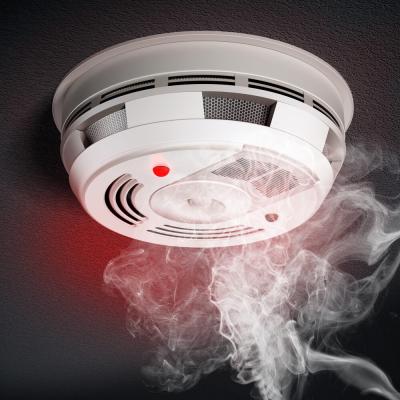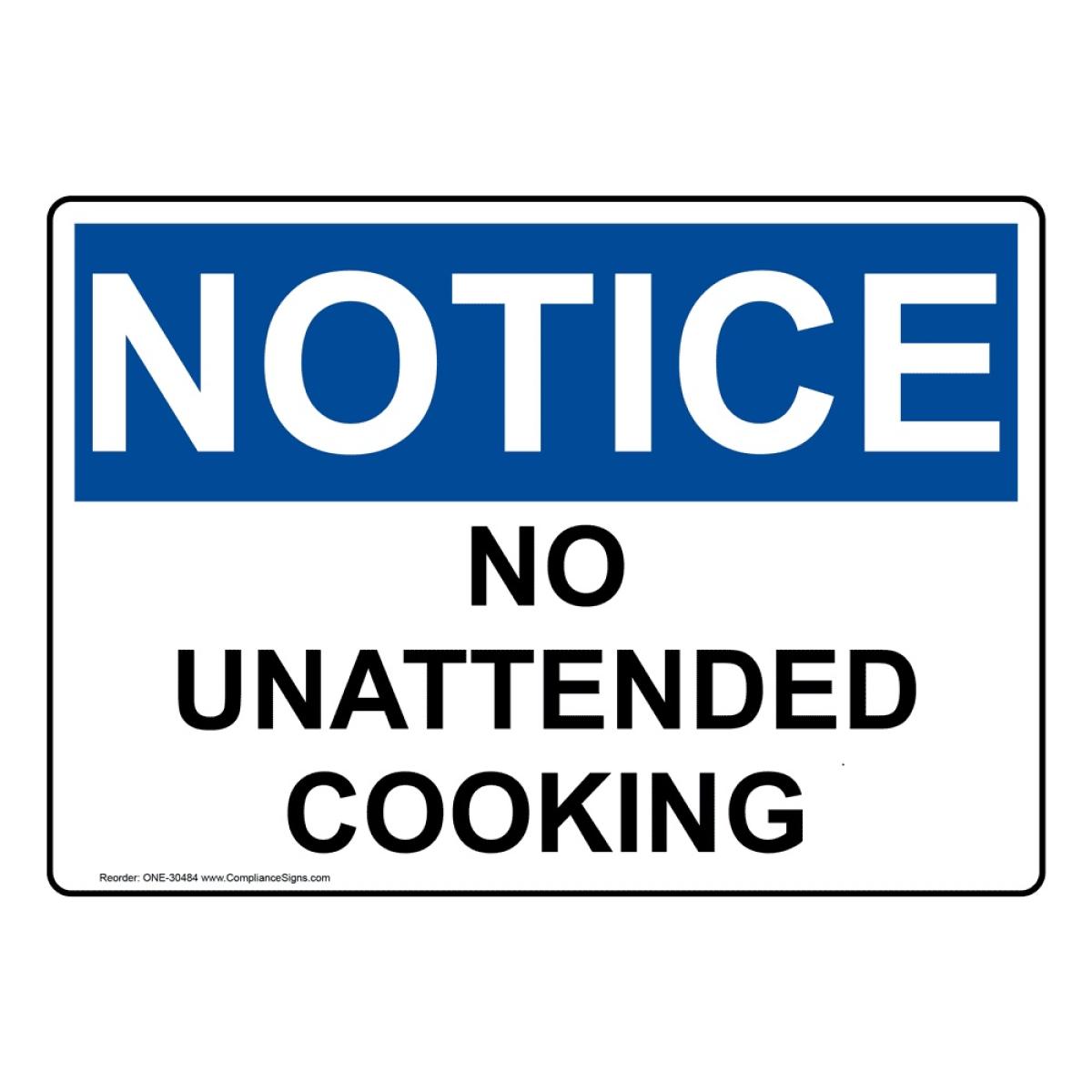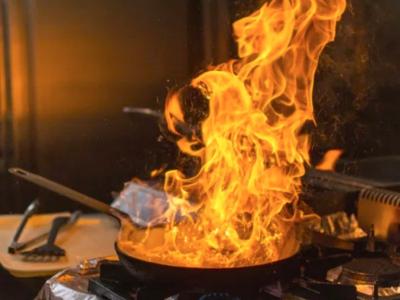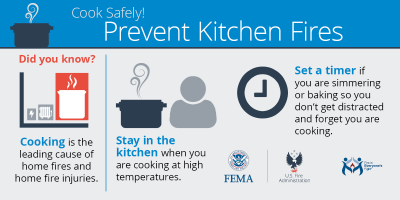
Smoke alarms save lives every year. In your home they should be placed:
- On every floor
- Inside and outside each sleeping area
- At least three feet away from air vents and exhaust fans
- Out of the path of steam or fumes from bathrooms or cooking areas.
Ionization smoke alarms detect fast fires burning from combustible materials. Photoelectric alarms detect smoke from low, smoldering fires. Install both types for added protection.
Maintain your smoke alarms by testing them once a month and replacing the batteries twice a year. If your alarm is older than 10 years, it should be replaced.

Only use grills outdoors. Position them well away from siding, deck railings, and out from under eaves and branches. Periodically remove grease from the tray below the grill.
City code prohibits those living in apartments and condominium communities from using gas or charcoal grills within 10 feet of the building or any other combustible construction, unless that building has an automated sprinkler system.
Cooking is the top cause of home fires and home fire injuries. Unattended cooking causes most fires in the kitchen. To avoid a kitchen fire:
- Be alert. Don’t cook if you’re tired or have been drinking.
- Stay in the kitchen while food cooks.
- If you are cooking a slow-roasting meal, such as a Thanksgiving turkey, stay in the house.
- Use a timer to remind yourself food is cooking.
- Keep flammable materials like oven mitts, wood utensils, and food packaging away from the stove and oven.
- Keep children away from the stove and oven.
- Keep the kitchen floor clear of clutter.
- Keep electric appliance cords from dangling off the edge of the counter.
- Keep a lid nearby when you’re cooking to smother small grease fires. If a small grease fire ignites, slide the lid over the pan and turn off the stove.
- Use a firestop device under your range hood or microwave to release a non-toxic fire suppressing powder if a fire does start.
If you have a kitchen fire:
- Just get out. Close the door behind you to help contain the fire.
- Call 911.
- If you do try to fight the fire, make sure others get out of the house and you have a clear way out.
- If a fire starts in the oven, turn off the heat and keep the door closed.
Fryers present an additional danger, because they can tip over, easily overheat, and are prone to splattering. If you use a turkey fryer, follow these tips to be as safe as possible.
- Make sure turkeys are completely thawed before using a fryer.
- Use fryers outside only, on a sturdy surface away from flammable materials.
- Don’t overfill the fryer with oil. Determine the correct amount of oil ahead of time by placing the turkey in the pot with water.
- Check the temperature often so the oil doesn’t overheat.
- Use long cooking gloves that protect both your hands and arms when you handle the fryer, lid, or handles.
Carbon monoxide (CO) alarms should be installed on every floor of your home and in a central location outside each sleeping area.
Test CO alarms once once a month.
If a CO alarm sounds, immediately open windows and doors or move outside. Make sure everyone in your home is accounted for, call for help from a fresh air location and stay there until emergency personnel arrive.
Careless disposal of cigarettes is a leading cause of fires.
If you smoke:
- Smoke outside.
- Use deep, wide ashtrays on a sturdy table.
- Before you throw out butts and ashes, make sure they are out, and dousing in water or sand is the best way to do that.
Never smoke in a home with oxygen tanks.
Don’t smoke if you’re sleepy or under the influence of medicine or drugs. You must be alert to prevent cigarette fires.
Littering
Littering cigarette butts is harmful to the environment and causes wildfires.
Children
Children playing with matches, lighters, and fires cause deaths and injuries every year. Young children are most likely to start fires inside the home. The following safety tips will held your children understand the danger of playing with fire:
- Store matches and lighters out of the reach of children.
- Use lighters with child-resistant features.
- Teach young children to tell an adult if they see matches or lighters.
- If your child expresses curiosity or interest in fire, explain that matches and lighters are for adults only.
Before permitting your child to sleep over at a friend’s house, make sure they have an escape plan in case of a fire.
Older Adults
Adults 65 years and older are more likely to die in a fire. Older people can reduce their risk of death and injury by following these steps from the National Fire Protection Association:
- If possible, sleep on the ground floor of your home.
- Make sure smoke detectors work and will wake you if you’re asleep.
- Conduct your own regular fire drills.
- Make sure you’re able to open the doors and windows in your home.
- Keep emergency numbers near a phone in case you must call for help.


